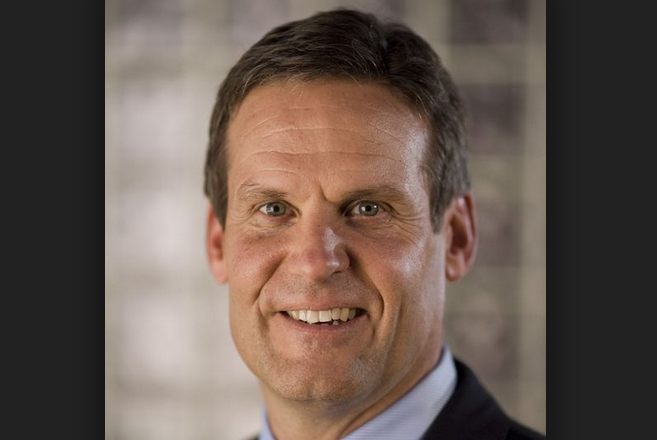Tennessee Gov. Bill Lee voiced his support for pro-life legislation Thursday after the state House passed a bill to ban abortions once an unborn baby’s heartbeat is detectable.
Lee, a pro-life Republican, reiterated his commitment to life during his State of West Tennessee address at the University of Memphis, WMC News 5 reports. While he did not specifically say if he would sign the heartbeat bill, Lee said he wants to see fewer abortions in Tennessee.
“I have said, and continue to say, that I would support legislation that lowers the number of abortions in the state,” the governor said, the Daily Memphian reports. “I will look at that particular bill when it gets to my desk. But I am interested in it.”
State House Bill 77, sponsored by Rep. Micah Van Huss, would prohibit abortions once an unborn baby’s heartbeat is detectable in Tennessee. Exceptions would be allowed for medical emergencies. If enacted, it would ban almost all abortions in the state. An unborn baby’s heartbeat is detectable at about six weeks of pregnancy, though research suggests a baby’s heartbeat may begin as early as 18 days after conception.
The state House passed the bill Thursday, despite concerns from leading pro-life advocates. It now moves to the state Senate for consideration.
Several pro-life lawmakers and Tennessee Right to Life, the oldest pro-life organization in the state, expressed concerns that the bill may have the opposite effect of what is intended.
House Speaker Pro Tem Bill Dunn, a pro-life Republican who has a long reputation of fighting for unborn babies’ rights in Tennessee, said the strategy is his concern.
“My concern with the bill as drafted is, No. 1, it will probably never save a life if we go by what’s happening in the past,” Dunn said. “If it’s challenged in the courts, it’s going to drive up a legal bill, so our money is going to be going to pro-abortion groups.”
The AP reports the American Civil Liberties Union of Tennessee already has said it will sue if the bill becomes law.
Tennessee Right to Life noted that Arkansas, Iowa and North Dakota also passed heartbeat laws, but none have gone into effect because of pro-abortion legal challenges.
“Significant tax dollars were awarded in legal fees in the other states to pro-abortion plaintiffs including hundreds of thousands of dollars to Planned Parenthood,” according to the pro-life group. “No justice on the U.S. Supreme Court agreed to take up lower court cases leaving intact the 8th circuit court rulings which found heartbeat bans unconstitutional.”
SUPPORT LIFENEWS! If you like this pro-life article, please help LifeNews.com with a donation!
The local news reports that because of these concerns, House lawmakers did vote to amend the bill in an attempt to prevent a successful legal challenge from completely “gutting Tennessee’s existing abortion restrictions.” However, it is not clear how effective the amendment would be.
In January, a judge declared Iowa’s heartbeat law unconstitutional. North Dakota and Arkansas passed heartbeat bills several years ago, but federal courts struck down both laws as well.
The Eighth Circuit Court of Appeals said the following about its ruling on the six-week ban: “Because there is no genuine dispute that (North Dakota’s law) generally prohibits abortions before viability — as the Supreme Court has defined that concept — and because we are bound by Supreme Court precedent holding that states may not prohibit pre-viability abortions, we must affirm the district court’s grant of summary judgment to the plaintiffs.”
The goal of heartbeat legislation is to prevent the deaths of thousands of unborn babies every year. However, some pro-life advocates admit that the success of the legislation is uncertain. While the rationale behind the law is noble, a number of pro-life leaders recognize that, for the present, such laws may create unintended consequences that could hamper the pro-life cause. When courts rule against such laws, state taxpayers often are forced to reimburse pro-abortion groups for their legal fees.
There is more hope that the new conservative-majority U.S. Supreme Court may consider an abortion ban, but it is difficult to say if it would for certain – especially after Chief Justice John Roberts recently sided with the liberal justices on an abortion case.
Heartbeat bills also have been introduced in a number of other states this winter, including in Florida, Georgia, Kentucky, Mississippi, Ohio, South Carolina and Texas.








